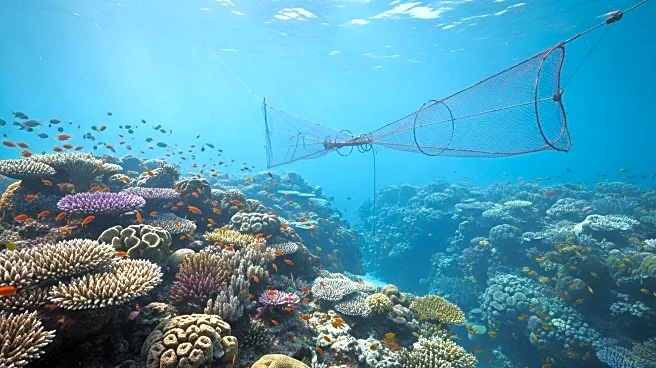What's Happening?
The UK government has rejected a recommendation from the environmental audit committee to ban bottom-trawling in marine protected areas (MPAs). This decision has sparked criticism from environmentalists and conservationists who argue that bottom-trawling is destructive to marine ecosystems. The practice involves dragging weighted nets across the sea bed, damaging flora and fauna. Despite heightened public awareness of marine conservation issues, the government has only prohibited bottom-trawling in three areas. The EU plans to ban such fishing gear in MPAs by 2030, with some countries like Sweden and Greece already implementing bans.
Why It's Important?
The decision to allow bottom-trawling in MPAs is significant as it highlights the challenges in balancing economic interests with environmental conservation. The practice is likened to 'bulldozing a rainforest' due to its destructive impact on marine habitats. The government's stance may hinder efforts to protect marine biodiversity and combat climate change. This issue underscores the need for stronger governance and a cohesive national framework for marine conservation. The decision could affect the UK's ability to meet its goal of protecting 30% of its waters by 2030, impacting both local ecosystems and global environmental commitments.
What's Next?
The new environment secretary, Emma Reynolds, is urged to revisit the decision and consider stronger protections for MPAs. The government may face increased pressure from environmental groups and the public to enhance marine conservation efforts. Restoring funding to ecological monitoring schemes and engaging stakeholders in a comprehensive conservation strategy could be potential next steps. The ongoing debate may influence future policy decisions and legislative actions related to environmental protection.










